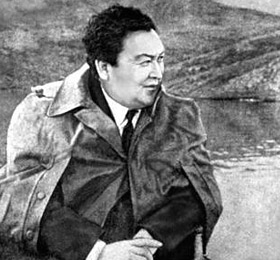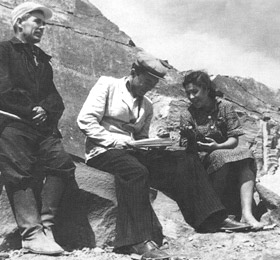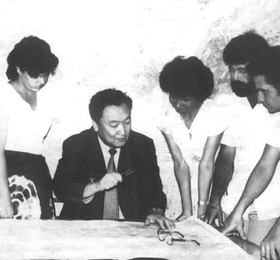Elina Darina
Specialization: Chemical Engineering of Organic Substances. Internship: University of Southampton, United Kingdom.
 Master’s graduate of the Buketov Karagandy State University, who recently celebrated her 23rd birthday. When we asked Elina what she was interested in besides chemistry, we expected her to tell us the name of her favorite TV series, drink or book. Surprisingly, she mentioned online courses on data science, videos on humanities. Elina now works in the production department. And when she gains practical experience, she plans to enroll for doctoral studies. Meet the winner of the Shakhmardan Yessenov Foundation Science Internship Competition.
Master’s graduate of the Buketov Karagandy State University, who recently celebrated her 23rd birthday. When we asked Elina what she was interested in besides chemistry, we expected her to tell us the name of her favorite TV series, drink or book. Surprisingly, she mentioned online courses on data science, videos on humanities. Elina now works in the production department. And when she gains practical experience, she plans to enroll for doctoral studies. Meet the winner of the Shakhmardan Yessenov Foundation Science Internship Competition.
But if we are serious about interests, Big Data is certainly not everything. The Karaganda native likes reading books “about history and politics”, gifting her friends with homemade cards, creating artificial but realistic flowers: “we end up with pretty cute bouquets and hair ornaments.”
Why are you so interested in chemistry?
During my time in high school, when choosing a profile subject, the UNT was based on what subject was easier to learn. I had no problems with chemistry, and the teacher at the school was amazing at explaining any, even the most complex material. Nevertheless, I started developing a real interest in my senior years at university when we started conducting experiments to synthesize various substances in the laboratory. This is when I first realized that chemistry is not just terrible formulas, but actually a completely creative science, where you can not just experiment, but even need to create something valuable with your own hands.
What do you remember about the competition for the Shakhmardan Yessenov Foundation grant?
Definitely, the final stage — training, business game, and, of course, the tough participants! I, to be honest, was completely at a loss in the interview. I did not know how I could “hook” the Foundation’s representatives. The responses of all the guys and their achievements in various fields were impressive. I rehearsed my answers dozens of times in my head, but the result was a mess… However, when it was my turn to speak, the words suddenly poured out in a light and smooth flow. We were asked to speak sincerely, and I succeeded… The night before the final, I couldn’t sleep.
 What was the purpose of your research work during the internship?
What was the purpose of your research work during the internship?
I worked in the chemistry laboratory at the University of Southampton under the supervision of Professor Richard C. D. Brown. We conducted experiments to synthesize tashiromine, which is found in some plants. Its base, a heterocyclic ring, has biological activity and is the basis of a number of drugs. As the participants of the student project of the laboratory, we needed to synthesize a molecule of this substance, choosing the most optimal conditions and reagents for the process. We processed the results (Proton nuclear magnetic resonance spectrum) of each study in a computer program authored by ACD Labs.
What results did you obtain?
All the reactions proceeded successfully and on time. There were, of course, some difficulties, but research is not complete without them. The molecule that we obtained artificially corresponded to the natural tashiromine molecule. I learnt a lot during those three months. After all, I was conducting some of the reactions for the first time in my life. Others lasted more than two weeks, as we needed to work at very low temperatures and in the complete absence of moisture. Any deviation from these conditions would ledd to losses. I learned how to purify a substance using column chromatography – a method that I was previously familiar with only in theory.
How did you spend your free time?
I visited all the museums and galleries in my town and in nearby towns (they are mostly free in the UK). My London trip was quite a memorable one. I even accidentally ended up at a rally against Brexit. I also saw the LGBT pride in my city. In the evenings, we watched local reality shows with our housemates and introduced each other to each other’s national cuisine.
Where to next, Elina?
I recently defended my master’s thesis on the study of new complex compounds based on nitrogen heterocycles. I now work as a production chemist. I would like to continue my studies to the doctorate level, and I’m currently deciding on my research area. I am generally interested in the so-called “green chemistry” that focuses on reducing the application in production of harmful and toxic chemicals that cause damage to nature. This is quite a promising field: it is still organic synthesis, but one that is developing in a different direction.
23.07.20, Stories
Seen by: 528




